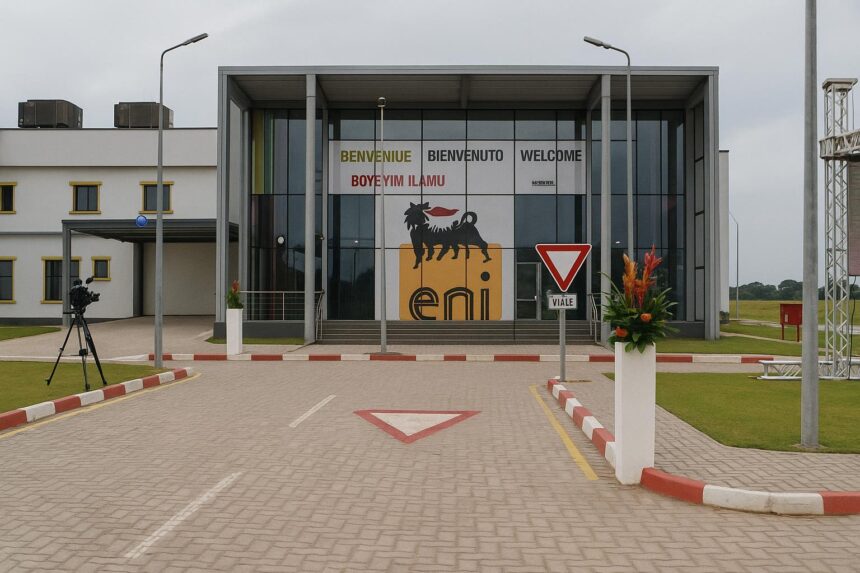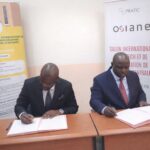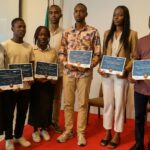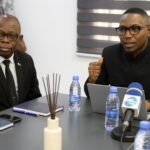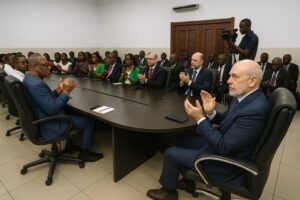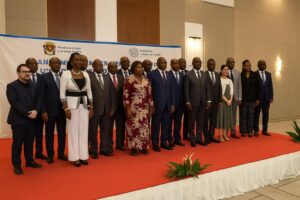Scholarships Boost Clean Energy Research
With a promise to nurture home-grown innovators, the Centre of Excellence of Oyo has opened the second round of its national research scholarships for Congolese Master-2 and post-master students. The call, announced this week, zeroes in on renewable energy and efficiency challenges facing communities from Pointe-Noire to Impfondo.
Organisers say the scheme materialises President Denis Sassou Nguesso’s vision of a diversified, knowledge-based economy powered by local expertise. By turning classrooms into laboratories for practical solutions, the initiative aims to accelerate affordable electrification while creating high-value jobs for the country’s youth.
Applications close on 31 October, giving candidates roughly four months to polish research proposals, collect reference letters and upload transcripts through the dedicated platform. Successful scholars will be notified in December 2025 and start receiving their stipends as early as January 2026.
Strategic Support for Congo’s Energy Future
Renewables currently represent a modest share of the national energy mix, yet hydropower potential along the Congo River and steady sun in the north offer room for growth. Experts at the Oyo campus argue that well-funded academic research can bridge the gap between theoretical potential and everyday kilowatts.
The Centre’s director, André Oba, stresses that localised studies often outperform imported solutions. “A turbine design tested in Makoua’s climate or a biomass stove perfected in Brazzaville’s markets speaks directly to our realities,” he noted during the launch event streamed on national television.
By allocating resources for lodging, lab access and monthly allowances, the programme hopes to remove financial barriers that previously forced many bright students to abandon experimental work or to relocate abroad. Keeping talent in Congo is seen as an investment in sovereignty as much as in science.
Who Can Apply and How
Eligibility targets Congolese nationals enrolled in the second year of a research master or any post-master programme at public universities. Applicants must present a detailed project outline no longer than ten pages, describing objectives, methodology, expected impact and a realistic budget aligned with national development priorities.
Two signed recommendation letters are mandatory, with at least one coming from a faculty member who has supervised the candidate’s laboratory work. The Centre also asks for a motivation letter explaining personal commitment to serving communities once the research phase ends.
All documents must be submitted through the portal ceo.cg, which automatically generates a tracking code. Officials caution that incomplete files will not be reviewed, and they urge students to anticipate network outages by uploading well before the deadline.
Inside the Oyo Centre
Built on the banks of the Alima River, the futuristic campus houses solar simulators, biomass digesters and a mini-grid sandbox where prototypes are stress-tested under tropical conditions. The residence block offers 60 individual rooms, high-speed internet and a cafeteria serving locally sourced produce.
Laboratories remain open until 22:00, enabling after-class experiments without compromising safety thanks to round-the-clock supervision. Visiting professors from Central African and European institutions run short workshops on grant writing, patent filing and entrepreneurship, ensuring research ideas can mature into market opportunities.
Former fellows report that the Centre’s mentorship network extends beyond graduation. “I still get feedback on my off-grid inverter prototype, even though I finished last year,” said Mireille Mavoua, now launching a start-up in Dolisie. Such follow-up, she believes, differentiates the programme from conventional scholarships.
Student Hopes and Expert Views
Across Brazzaville’s campuses the announcement has already stirred excitement. Final-year engineering student Boris Nganga hopes to test a micro-hydro turbine adapted for shallow rural streams. “If residents can power a rice mill with river current, family incomes rise instantly,” he explained.
Energy economist Pauline Bemba views the scholarships as timely. She points to regional data showing that every dollar invested in applied research can unlock eight dollars in downstream infrastructure financing. “Proof-of-concept generated locally reassures investors and shortens decision cycles,” she said by phone.
Key Dates and Practical Tips
Candidates have until 23:59 on 31 October to finalise uploads. The platform allows edits up to submission, so early drafts are encouraged. Applicants should compress large image files, verify scanned signatures and double-check that reference letters are on institutional letterhead.
Shortlisted students may attend virtual interviews in November where they present slides summarising feasibility, risk management and relevance to national policy. Officials hint that clarity of communication and community outreach plans weigh heavily during final deliberations.
Award letters will be dispatched in mid-December, just in time for recipients to organise relocation to Oyo ahead of the January induction week. Transport stipends cover round-trip travel, and a dedicated helpdesk will guide newcomers through registration and accommodation formalities.
For now, the immediate priority is simple: encourage as many eligible students as possible to seize the opportunity. As director André Oba summed up, “Every kilowatt we harvest from our own ingenuity is a step toward energy independence and prosperity for all Congolese.”

